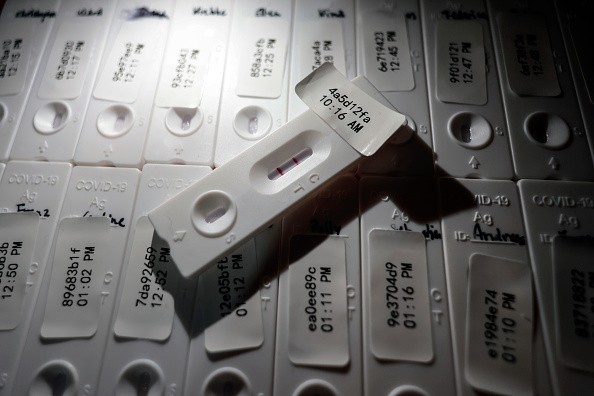Kristin Fox, a 42-year-old mother and an Ohio high-school principal, encouraged to raise awareness after she lost all four limbs due to flu complications before the COVID-19 pandemic dominated the world in March 2020.
Fox had a sore throat on Friday, and her condition worsened on Sunday. She tested positive for the flu the same day but was shot with the flu vaccine in November.
Fox Speaks Out to Raise Awareness

Getting the flu usually means a few days of being sick and returning to normal. However, the virus of the flu became a life-threatening sepsis for Fox, resulting in losing her arms and legs.
The doctor gave her Tamiflu as her medication and sent her home to rest, but her condition worsened the next day. Fox said she felt like dying, so a nurse friend came over to her house and checked her blood pressure and oxygen levels, which were gravely low.
Fox was rushed to the hospital with a ventilator and was warned by the medical team that she might not make it to the hospital. The medical team found that Fox had developed bacterial pneumonia, which was leading to organ failure. Her kidneys were on the verge of shutting down as one of her lungs already collapsed.
Furthermore, the medical team did not realize earlier that Fox was already in a septic shock that caused organ failure and plummeting blood pressure, leading to a life-threatening infection.
The hospital brought a priest as they were expecting that Fox might be unable to make it through the night on Tuesday. On Thursday, she was put into a medically induced coma, and the doctors gave her vasopressor drugs to save her vital organs.
"The doctors told my family they should prepare for the loss of some fingers or toes, because they were pulling so much from my extremities to try to keep my organs alive," Fox said.
On March 26, the doctors notified Fox's husband and parents that they needed to cut off Fox's legs the next day as the infection continued to rise above Fox's knees, resulting in her critical condition.
Fox's arms were also amputated below her elbows. Fox said that she still feels lucky as other people lost their whole arms. She started to breathe without a ventilator, and later on, on May 27, she left the hospital. Then, she was advised to attend physical therapy at the University of Pittsburgh Medical Center Rehabilitation Institute.
She completed six weeks of intense physical therapy, attending three hours per day. In 2020, Fox had the chance to have prosthetics for her arms and legs.
Fox said it was a huge learning curve, like a trial and error of what could work and what could not. Luckily, Fox was selected to receive a custom prosthetics organization for free called 50 Legs in Orlando, Florida.
She said the prosthetics were life-changing as the prosthetics were genuinely built for her and not just a size that everybody wears. As a quadruple amputee, Fox enters a new challenge and tries to work out to go to football games again.
She realized that there were things she had never considered before in terms of accessibility and compliance. After a year off, she returned to her job as assistant principal at Campbell High School. Furthermore, her children motivated her to move forward. She said many kids could learn from her, especially to respect differences and treat everyone equally, regardless of their ability.
Read Also : Taylor Swift Kisses Travis Kelce After Buenos Aires Eras Tour Concert, Confirms Dating Rumors
What is Sepsis Risk?
According to the Centers for Disease Control and Prevention (CDC), at least 1.7 million adults in the U.S. develop sepsis, and nearly 270,000 die from the infection every year.
Dr. Marc Siegel, clinical professor of medicine at NYU Langone Health Medical Center, said that flu was a great enabler of more severe illnesses. He said the flu could be anything from a sinus infection to bronchitis, meningitis, or pneumonia.
The doctor also noted that the flu can cause an inflammatory response called a cytokine storm. Some warning signs of sepsis are high fever, fatigue, dizziness, and weakness.
He advised that to prevent limb loss, the patient should be rushed to the hospital immediately to access broad-spectrum antibiotics.








